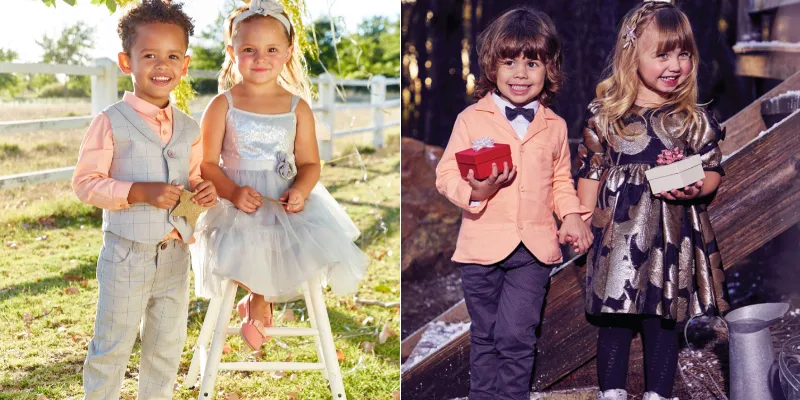This Rs 107 Cr turnover self-funded Indian kidswear brand appeals global customers, eyes IPO
Bengaluru-based MiniKlub is a Rs 107 crore turnover company that has a manufacturing line in Bengaluru and Sri Lanka. A completely bootstrapped business, its founder, Anjana Pasi, reveals its success mantra and plans for IPO.
The kidswear segment in India’s apparel industry has taken a quantum leap in the past few years thanks to the entry of many new-age brands along with foreign brands. Capitalising on this growth and joining the bandwagon is – a Bengaluru-based kidswear brand that offers a premium quality apparel range.
According to Statista, the kidswear segment accounted for about 20 percent of the total apparel market in India in 2018. It was predicted to reach nearly Rs 1.7 trillion by 2028.
Anjana Pasi, Founder and Director of MiniKlub, got a sense in 2012 that the kids' sector in the apparel industry was bound to see phenomenal growth. Back then, she, along with her husband Manish Pasi, had been manufacturing apparel for other brands in the industry. They pivoted and entered the retail space.
In an interaction with SMBStory, Anjana says,
“Since 2002, we have been in the business of manufacturing clothes for popular foreign brands like Mothercare, Morrisons, and others. After gaining expertise and being in the business for over a decade, we thought of taking a chance and launching our own brand – a complete design-to-dispatch brand.”
“The majority of the brands are just retailers,” Anjana further explains. “The retailers do not understand the term ‘quality’ and this gap is widening in the Indian market.”
To fill in this void, Anjana and Manish built MiniKlub using their savings where they’d control the entire business operation – right from development to product dispatch.
Within a decade after its inception, MiniKlub has grown to be a Rs 107 crore turnover company, Anjana claims. She says that in the next two to three years, they will also target an Initial Public Offering (IPO).
Made in India kidswear brand
MiniKlub started its retail journey in 2013 with a vision of providing quality apparel that matches international standards, Anjaya says. Today, the brand has established 85 percent coverage across India, with more than 450 multi-brand outlets, leading large and regional large format stores, and offering clothes for children — from newborns to six-year-olds. The brand competes with the likes of Hopscotch, Gini & Jony etc.
Having a strong marketplace presence with Myntra, Amazon, Flipkart, and Ajio; Miniklub also launched its sub-brand Mini Cuddles in the UK, in partnership with John Lewis – the largest cooperative in the UK. Mini Cuddles offers a comfy fashion range for kids aged up to two years old.
Anjana says that the core of the brand lies primitively in offering premium quality, hence, the raw materials are sourced locally from India and Sri Lanka, where the brand has its second manufacturing unit. The main unit is in Bengaluru, Karnataka.

MiniKlub's party collection
Sustainable is the future
Talking about its new collection, Anjana says they come out with different styles every season, and for the coming summer, they are planning to launch sustainable wear.
“Every brand that cares is going sustainable. We have to cater to all customer segments, so we are launching our all-sustainable summer collection. Sustainable is the future and we are too working towards it.”
Challenges and the way ahead
MiniKlub has been growing at around 13 percent year-on-year, given that the brand is also planning to get listed in the next few years. However, one of the biggest challenges it faces is the rise in the price of cotton – one of the primary raw materials.
“Steep prices in cotton are due to the ban on Chinese cotton in the international market, which is causing global cotton prices to change. All the fabric prices have increased across apparel, home furnishing, and other makeup products that use cotton fibre.”
The increase in cotton prices is set to stay due to the change in market equilibrium. The consumer will have to pay close to 15 percent higher, which will reduce the overall consumption.
While many see an opportunity to create big businesses amid the startup boom, Anjana says her approach is a bit different.
“When you are creating something, it's always about the end product. For us, every mom should feel that we have done our best research and dedicated time to give quality and comfort to her child,” she signs off.
Edited by Kanishk Singh









